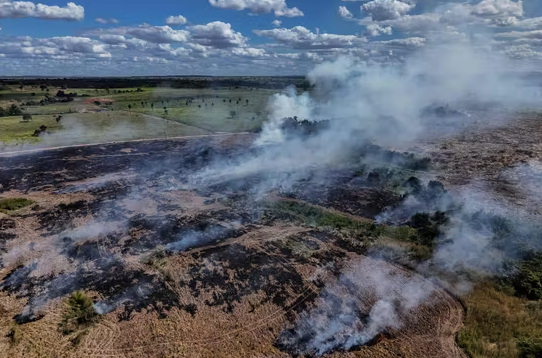Gross emissions in the country fell by 16.7% in 2024 compared to 2023, according to calculations by the Brazilian NGO network Climate Observatory.
Brazil Records Its Sharpest Drop in Greenhouse Gas Emissions Since 2009, Thanks to Efforts Against Deforestation
Brazil achieved in 2024 its largest year-on-year reduction in greenhouse gas emissions since 2009, largely due to a decline in deforestation, according to data released on Monday, November 3, just days before the opening of COP30.
Gross emissions in Latin America’s largest country fell by 16.7% in 2024 compared to 2023, according to calculations by the Brazilian NGO network Climate Observatory.
The figures are good news for the government of President Luiz Inácio Lula da Silva, who will host the United Nations Climate Conference (COP30) starting November 10 in the Amazonian city of Belém.
“The new data show the impact of the government’s decision to resume monitoring deforestation,” which had been “deliberately left unchecked” under former president Jair Bolsonaro (2019–2022), said the network in a statement.
During Bolsonaro’s term, deforestation surged, particularly in the Amazon rainforest — a vital ecosystem for absorbing greenhouse gases.
Persistent Challenges
Deforestation in the world’s largest tropical forest has steadily declined since Lula returned to power for a third term in 2023, following his first presidency from 2003 to 2010. It fell by 11% year-on-year over the reference period from August 2024 to July 2025, according to official figures released last week.
Despite the encouraging 2024 data, “Brazil’s 2025 economic indicators do not allow for optimistic projections regarding the country’s ability to meet its emissions reduction targets this year,” cautioned the Climate Observatory.
The NGO network also criticized Lula’s support for a large offshore oil exploration project near the Amazon, noting that fossil fuels remain the world’s main source of greenhouse gas emissions.
Drilling by the state-owned company Petrobras began in October after receiving approval from the environmental agency Ibama.
Facing criticism, Lula argues that oil revenues could be used to fund the energy transition, balancing Brazil’s economic and environmental priorities.
Source : Le monde


